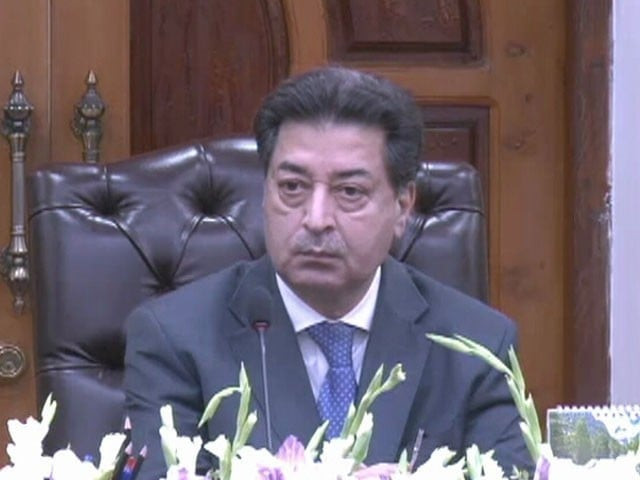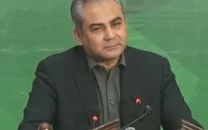CEC's tenure nears end amid political deadlock
Appointment of new CEC yet to commence as PM, opp leader at odds

With Chief Election Commissioner (CEC) Sikandar Sultan Raja's five-year tenure set to expire on January 26, the countdown has begun for a crucial transition in the electoral machinery amid political deadlock that potentially threatens a timely appointment of his successor.
However, under the 26th Constitutional Amendment, he will continue to serve until a successor is appointed.
In addition to the CEC, the members representing Sindh and Balochistan in the commission are also set to retire on the same date. They will also continue their responsibilities until new appointments are finalised.
The process of appointing a new CEC and members has yet to commence, as consultations between the prime minister and the leader of the opposition remain stalled.
According to the Constitution, both leaders must engage in discussions to finalise the appointments of the CEC and its members.
In the event of a deadlock between the prime minister and the opposition leader, the matter is referred to a parliamentary committee. The committee, formed by the National Assembly speaker, comprises 12 members, with equal representation from the government and the opposition.
If consensus is still not reached, each side submits three names for every vacant post to the parliamentary committee. Should the committee fail to reach an agreement, the matter is escalated to the Supreme Court for resolution.
As per the constitutional framework, the appointment of the new CEC and members must be completed within 45 days.
However, until the new appointments are made, the current officeholders will continue performing their duties. Eligibility criteria for the CEC include individuals under 68 years of age, who may be retired Supreme Court judges, technocrats or bureaucrats.
For commission members, eligible candidates include retired high court judges, bureaucrats and technocrats under the age of 65.

1724319076-0/Untitled-design-(5)1724319076-0-208x130.webp)

















COMMENTS
Comments are moderated and generally will be posted if they are on-topic and not abusive.
For more information, please see our Comments FAQ